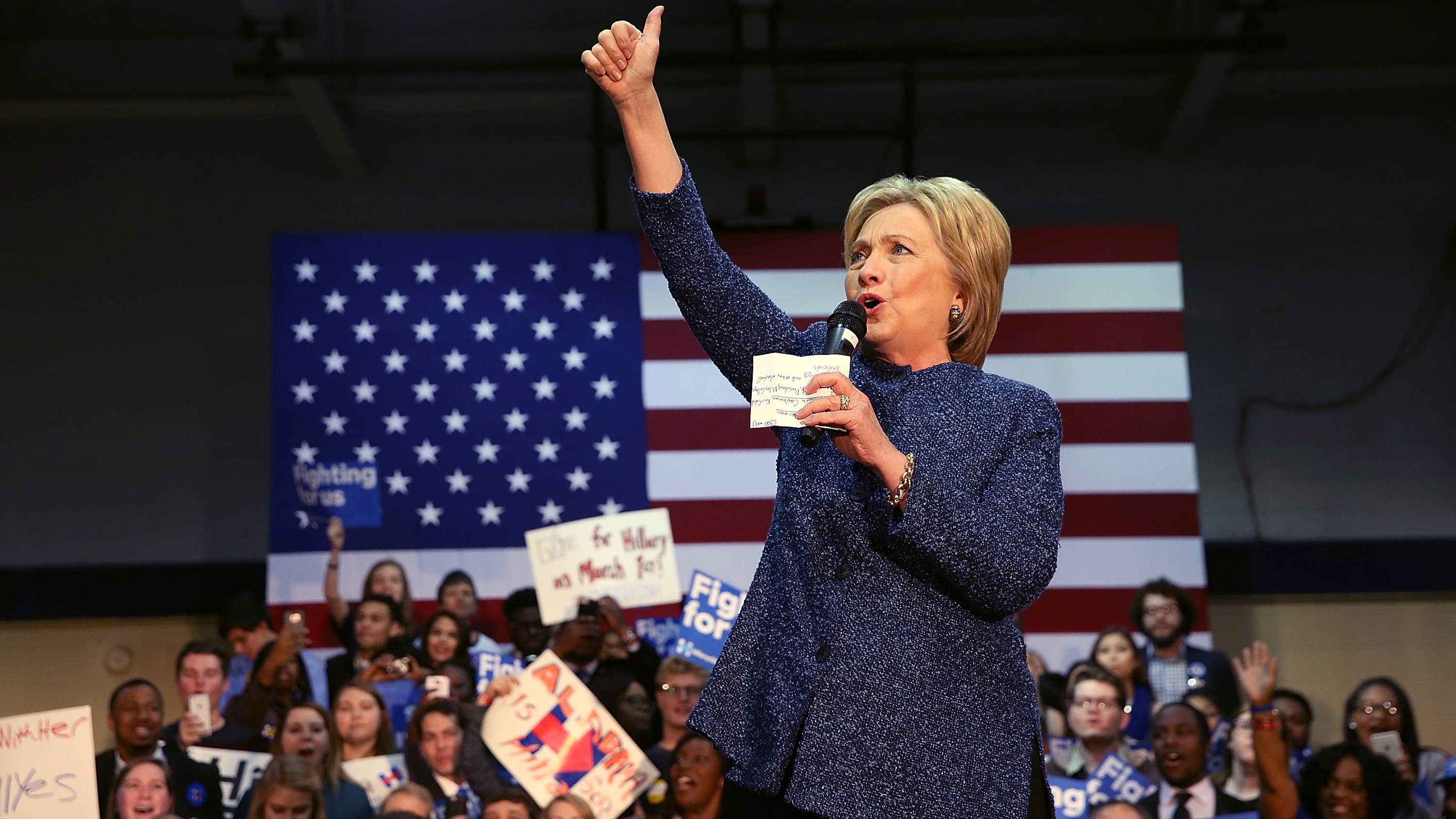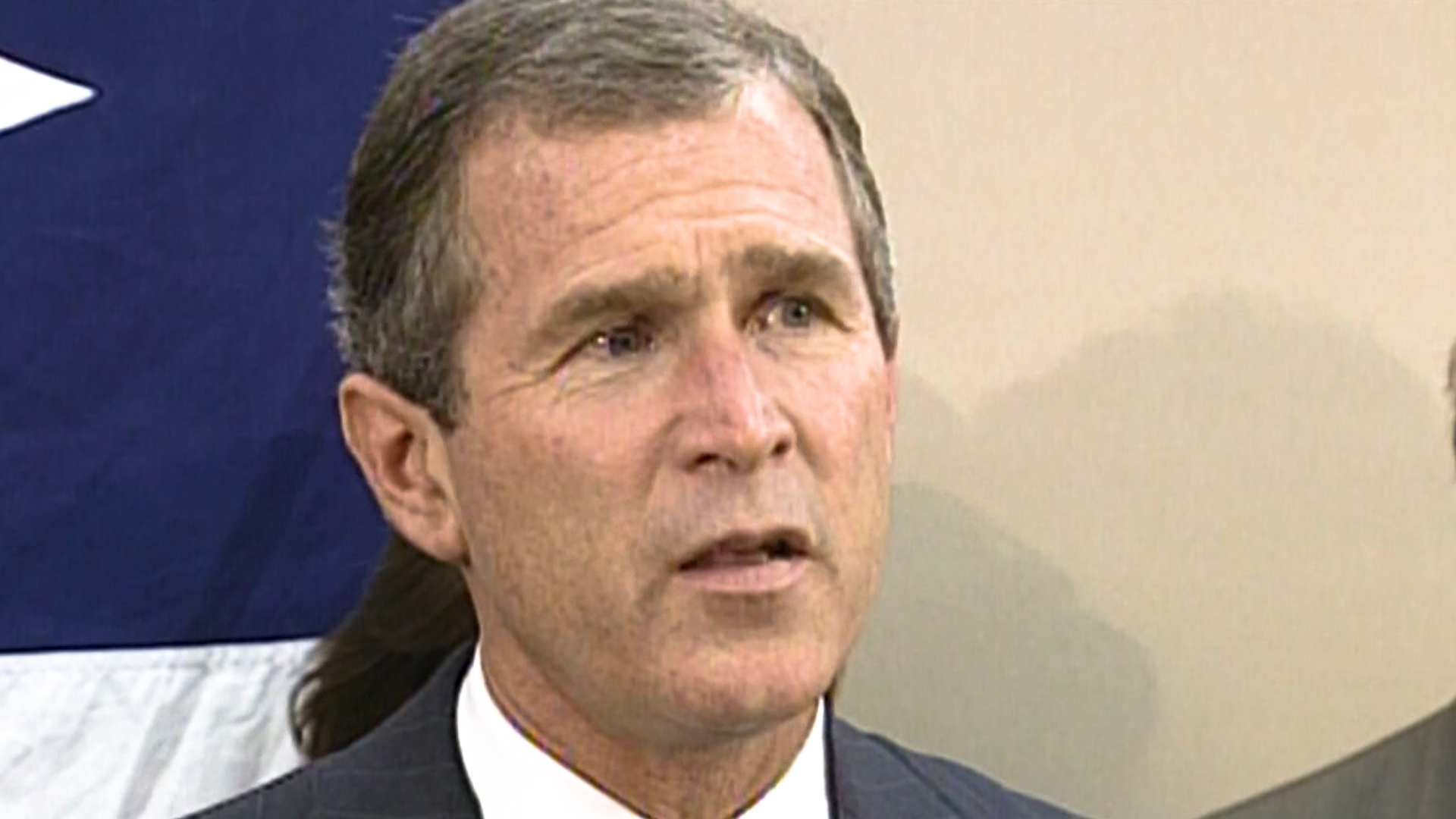COLUMBIA, S.C. — Hillary Clinton has picked up her biggest win yet over Sen. Bernie Sanders in the 2016 Democratic presidential race, taking Saturday's South Carolina primary. Her win in the Palmetto State, where African-Americans made up a larger percentage of the electorate than they did in 2008, gives Clinton a boost heading into Tuesday, when a number of states with large black populations cast their votes.
Clinton's win is her third of the campaign. A week ago, she captured the Nevada caucuses and won the Feb. 1 Iowa caucuses by a razor-thin margin.
Bracing for the loss, Sanders has been hitting Clinton on issues important to African Americans, including criminal-justice reform. With merely days before larger, delegate-rich states like Texas and Georgia vote on March 1, the Vermont senator needs to expand his support among minorities.
Early exit surveys show why South Carolina is the first real test of the candidates' appeal to black voters. Six in ten South Carolina Democratic primary voters were African-American, the polls indicated, breaking the state's 55% record from eight years ago, when then-Sen. Barack Obama was on the ballot. In contrast to Iowa and New Hampshire, many more South Carolina voters also consider themselves moderates looking for a candidate with experience in politics versus an "outsider."
A sizable victory Saturday sets Clinton on a glide path to winning a series of southern states, where polls show she's favored. Obama's big margin of victory in South Carolina was critical in putting him on a path to the nomination.Clinton made a significant investment in the state, appealing in particular to African American women with her campaign's "barber shop" strategy.
Clinton hit hard on issues important to African-American voters, including criminal justice reform and gun control, while also embracing President Obama. She met with mothers of gun violence victims and picked up the support of Rep. Jim Clyburn, the state’s highest-ranking black Democrat. Clyburn stayed neutral ahead of the 2008 primary. She held town halls on “breaking down barriers” for blacks, carpeted the state with ads and deployed both her daughter, Chelsea, and husband, former president Bill Clinton.
Yet, Sanders will press forward despite the expected losses. His campaign sees an opportunity in states such as Massachusetts and Oklahoma, with its large percentage of independent voters, as well as Colorado and Minnesota, both caucus states. Sanders is also still flush with campaign cash, pulling in millions of dollars in new contributions after his decisive win in New Hampshire. And, even if he loses the nomination, amassing a significant number of delegates would empower him to elevate the issues he cares about most, such as campaign finance reform, at the July Democratic convention in Cleveland.
In the past couple of days, the senator has taken a more critical tone toward Clinton. At a rally in Orangeburg, he gave an abbreviated version of his stump speech before attacking Clinton’s support for the death penalty as well as 1990s-era welfare reform — emotionally charged topics in African-American communities.
“Let me throw it out,” Sanders said. “I just don’t think the government should be involved in that violence and should be killing people,” he said, stating that Clinton disagrees. He also cited the fact that a lot of innocent “people of color” have been executed.
He then made a hard pivot from talking about Republican Donald Trump “scapegoating minorities” to discussing a 1996 welfare overhaul that, he said, assumed “poor people were ripping off the system.”
The “end result” was a doubling of extreme poverty rates, Sanders told the crowd gathered in Orangeburg. “I’m talking about the poorest of the poor, children who are hungry,” he said. “I vigorously opposed that legislation” while “Secretary Clinton supported it,” he said.
On Saturday morning in Texas, he slammed Clinton for supporting the 1996 Defense of Marriage Act, calling it “homophobic.”
Later, Sanders senior adviser Tad Devine made a more direct link between Clinton and Trump, tweeting a link to a Washington Post story: “What Trump and Clinton have in common: A resistance to transparency.”
The broadsides were a continuation of a speech the night before in Chicago. Yet it appears the Vermont senator may be conflicted over the approach. In his final appearance in South Carolina on Friday night, Sanders dropped the attacks and stuck largely to his stump speech before a large crowd in Columbia.
Clinton campaign officials worry that the more aggressive posture, mostly on policies enacted under her husband’s administration — and not legislation she championed as a U.S. senator – encourages a divisive tone that could linger into the general election.
The Sanders campaign says it’s merely drawing distinctions between the two candidates, which is different from a personal attack.
Spokesman Michael Briggs said that the Vermont senator believes "it is important for voters to know and understand the differences between Sen. Sanders and Secretary Clinton on a host of issues like taking on Wall Street, Big Oil, the pharmaceutical industry and the rest of the rigged economy."
South Carolina state Rep. Justin Bamberg, a Sanders backer, argued that drawing distinctions is "important" and that it wasn't personal. He argued that Sanders is the most electable candidate. “It may be too late in South Carolina for that message to resonate,” but not for the rest of the country, said Bamberg.
However, the Clinton campaign believes the new approach is the sort of negative rhetoric that Sanders swore off earlier in the campaign. As recently as the end of last month, Sanders said he would resist the pressure to personally attack Clinton and would run a positive campaign “because I think it is the moral and right thing to do.”
During the Chicago address on Thursday, Sanders’ attacks on Clinton were wide-ranging, from her Wall Street speaking fees and contributions to policies enacted under her husband’s administration, including welfare reform, trade policy and an anti-gay rights bill.
In a Thursday press release, Sanders campaign manager Jeff Weaver highlighted Clinton’s support for a 1994 crime bill that’s blamed for high incarceration rates of young African-American men. Clinton has called for new legislation to undo the laws, and Sanders voted for the same bill while expressing criticism.
“Hillary Clinton, on the other hand, resorted to dog whistle politics and dehumanizing language,” said Weaver.


